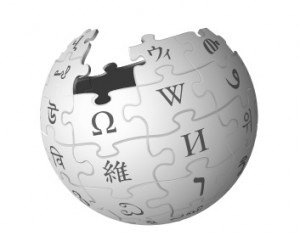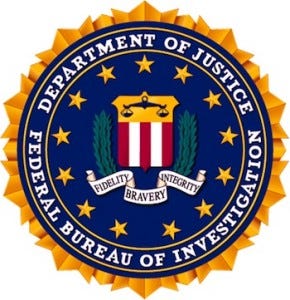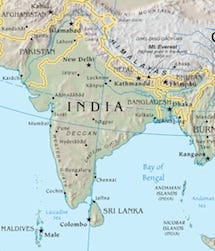The Top 10 Wikipedia Stories of 2010
The year 2010 will be over and out in another day's time, which means there is no time like the present to look back on the year that was at Wikipedia. Instead of some kind of highfalutin' think piece on what the past year, like, meant, let's make this an easy-to-write, easier-to-read listicle outlining the biggest stories of the year involving Wikipedia—at least from an English-speaking, North American perspective. (For it is this perspective from which I am most qualified to write.)
For better or worse, here are the stories that defined Wikipedia, on-site and off, in 2010:

10. Wikipedia backups discovered — This occurred just in the past few weeks, and has not received a great deal of attention outside of Wikipedia circles, but to Wikipedia enthusiasts, it's a big one. In mid-December, Wikimedia Foundation developer Tim Starling found several files dating back to Wikipedia's first three months of existence. These had long been presumed to be gone for good, but now Wikipedia's earliest days are much easier to reconstruct. Joseph Reagle of Harvard's Berkman Center extracted the first 10,000 edits and has placed them on his own website for viewing, and in the future a more accessible reconstruction may be created, similar to the one at nostalgia.wikipedia.org.
9. Cuba's Wikipedia copycat — EcuRed is the Castro regime's attempt to emulate Wikipedia. At least, in terms of look and feel: EcuRed may well be built using wiki software, but content updates are strictly reserved for unknown pre-approved editors. The entry for Estados Unidos is amusing. Surprisingly, there is no entry for Capitalismo, only Imperialismo, fase superior del capitalismo. Translated from Spanish, the website's front page proclaims it was "born from the desire to create and disseminate knowledge with everyone and for everyone from Cuba and the world." It would probably more more correct to say that it was born of a desire to create and disseminate propaganda for Fidel and Raúl Castro and their cronies.

8. Mike Godwin vs. the FBI — This was just weird. During the summer, the FBI sent a cease-and-desist letter to Wikipedia demanding that they remove occurrences of the FBI seal from Wikipedia articles about the agency. According to the FBI, use of the logo conflicted with the law. According to Wikimedia Foundation general counsel Mike Godwin, the law cited was about preventing people from impersonating FBI officials. Godwin's sardonic reply—"While we appreciate your desire to revise the statute to reflect your expansive vision of it, the fact is that we must work with the actual language of the statute, not the aspirational version"—amused many. Two months later, Godwin resigned his position at Wikimedia. Were the two incidents connected? That was the whisper, but neither Mike nor the Foundation have clarified the reasons for his departure. It's entirely possible that the two are not connected, but the whispering hasn't been refuted. The FBI seal's presence on Wikipedia, and Mike Godwin's famed wit elsewhere, live on.

7. Wikimedia expansion to India — Wikipedians are all too aware of the fact that most of their contributions come from the rich, Western nations in the Anglosphere and Western Europe, but they yearn for participation to grow much beyond. As in the global economy, much growth may be found in the BRICs. Among industrializing countries, interest in Wikipedia has been especially strong in India, which is being rewarded with the first non-U.S. office of the Wikimedia Foundation. (For what it's worth, I myself attended a Wikipedia-oriented conference in Bangalore this past January.)
6. Wikipedia gets a new look — Bet you didn't notice this until months after it happened, but in the first half of 2010, Wikipedia received its first major redesign in several years. Gone was the "Monobook" skin and in was the "Vector" look. Why change? Wikipedia is always looking for ways to make the site easier to read—and easier to edit—and there had been concern for some time that the site design was becoming outdated, even in some ways confusing. Perhaps the biggest change involved moving the search field from the lefthand sidebar to the top right corner, a placement more common among popular websites. And the result? The number of individuals contributing during the second half of 2010 has been mostly flat, and even down slightly. Whatever drives people to contribute to Wikipedia, or stay away, is a force more powerful than web design.

5. Flagged revisions, er, pending changes — For years, the German-language Wikipedia has maintained a unique system for improving the reliability of its pages: contributions by new and infrequent users are held for review by more trusted editors. The result has been an encyclopedia taken far more seriously by academics in that country, so Wikipedians on the larger (and looser) English Wikipedia decided to give it a try. First called "flagged revisions" and later changed to the arguably more intuitive "pending changes" (yes, there was a debate about this), a number of articles were protected in this manner. The result was inconclusive: while a clear majority of participants voted to continue employing some form of pending changes, there was no consensus on just how to do it. For now, the project lies dormant.

4. Wikipedia in education — This is not one story, and it's not unique to the past calendar year: encyclopedias have been staples of term paper bibliographies for decades (at least) but the rise of Wikipedia has turned this on its head. Where teachers were once content to let students cite Britannica on any number of subjects, many (if not most) now ban students from using Wikipedia in assignments. But 2010 may be the year in which educators learned to stop worrying and accommodate (if not love) Wikipedia. Time and debate have allowed more professional educators to see that Wikipedia is a legitimate starting point for research, and Wikipedia's own imperfections provide numerous teachable moments. ZDNet education writer Christopher Dawson's well-argued "Teachers: Please stop prohibiting the use of Wikipedia" is a good example of the former, while classroom projects at UC Berkeley and the University of Rhode Island show there is great promise for the latter.
3. Larry Sanger reports Wikimedia to the FBI — The Federal Bureau of Investigation and Wikimedia Foundation sure got to know each other this year. In April, estranged Wikipedia co-founder Larry Sanger sent a missive to the FBI reporting the Wikimedia Foundation for hosting "child pornography" and other obscene images on Wikipedia sister site Wikimedia Commons. Among the contested images were nude artistic works depicting the underaged and sexually explicit images featuring adults. Wikipedia's commitment to the free availability of information can be controversial; name a body part or disease and you are going to see a picture of it on that Wikipedia page. There is even a specific policy related to this question, called "Wikipedia is not censored". But does this mean that anything goes? Even after Sanger clarified that he understood no actual prurient images photographs of child sexual molestation* were in the site's collection, some images were deleted, and the FBI pursued no action in any case. Although resolved for now, you can bet the controversy over the line between "censorship" and "editorial policy" will come up again.

2. Wikileaks and Wikipedia confusion — You may protest that Wikileaks has nothing to do with Wikpedia. In fact, I wrote "Wikileaks: No Wiki, Just Leaks" over the summer, when the mysterious online outfit published its Afghan War Diary. But the mere presence of the word "wiki" in the the not-a-wiki site's name has become a potential PR problem for Wikipedia. When Wikileaks re-entered the news with the publication of leaked U.S. diplomatic cables in the fall, Jimmy Wales openly criticized Wikileaks, telling Charlie Rose: "If I had some information, the last thing I would ever do with it is send it to Wiikileaks." Even Larry Sanger published a critical commentary about Wikileaks on his own site; although Sanger only tangentially referenced Wikipedia in his comment, the press took up that angle regardless. As long as Wikileaks remains a well-known and much-criticized public entity, Wikipedia will have to keep repeating the message that the two organizations have nothing to do with one another. Which leads us to #1...

1. The face of Wikipedia fundraising — It was perhaps fortuitous that the latest round of Wikileaks debate occurred at the same time the Wikimedia Foundation was undertaking the most sustained and visible PR push in its history. Since late November, Wikimedia sites have featured large banners across the top, asking readers to donate money toward its goal of raising $16 million—the largest amount yet requested, though still not quite enough to cover 2011's expected operating budget. Most banners featured Wales' face prominently, asking readers to consider his "personal appeal" to contribute. While effective, they've also been a source of annoyance and subject of derision. The New York Observer headline, "Staring Contest with Jimmy Wales To Go On Indefinitely", was among the politer expressions of this viewpoint. On the other hand, they are working: at the campaign's outset, Wikimedia collected in one week what they took in over a month last year. As of this writing, the organization had just about a million dollars left to go. Not too shabby. And Henry Blodget will get a chance to recycle his call for Wikipedia to deploy advertising next year.
That was the year that was, at Wikipedia and the Wikimedia Foundation. Next year will be another. If you think I've missed or messed up anything important, please share in the comments. See you in 2011!
All images via Wikimedia Commons.
*Updated, per comments.


